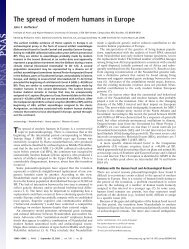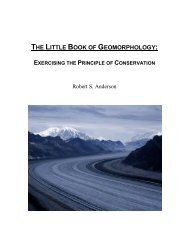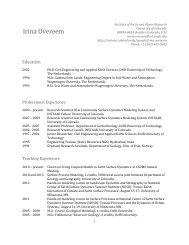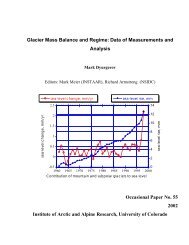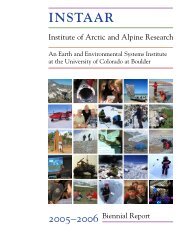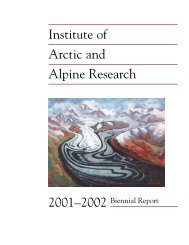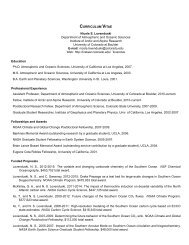Economic Feasibility Study of Colorado Anaerobic Digester Projects ...
Economic Feasibility Study of Colorado Anaerobic Digester Projects ...
Economic Feasibility Study of Colorado Anaerobic Digester Projects ...
You also want an ePaper? Increase the reach of your titles
YUMPU automatically turns print PDFs into web optimized ePapers that Google loves.
15 minutes each month for maintenance purposes. Frequently the unexpected<br />
maintenance problems occur during peak energy demand times.<br />
Anecdotal experience presented by the technology providers is that <strong>Colorado</strong>, as an<br />
industry, is slow to provide supply/demand initiatives compared to other western<br />
states such as Oklahoma, Texas, and California. In contrast to <strong>Colorado</strong> utility<br />
company practices, which strictly inform producers <strong>of</strong> their rates, California PG&E<br />
enables operators to shift to different utility rate structures. Such “open door<br />
policies” foster a more favorable environment to generate energy onsite.<br />
Demand-side utility policies that GEO could facilitate that may improve producer<br />
cost savings (and effectively lower energy demand charges) include:<br />
• Higher demand thresholds (or tiered demand thresholds).<br />
• Utility plans that specifically accommodate planned periods <strong>of</strong> AD shut down,<br />
even during peak energy times.<br />
• More flexible or customized service plans to accommodate facilities that<br />
generate alternative energy. Several formats may be developed and may<br />
include options such as tiered demand thresholds, tiered pricing, and <strong>of</strong>fpeak<br />
pricing.<br />
• Consistent agreement and cooperation between utility providers and<br />
producers about net metering practices.<br />
• Improved implementation <strong>of</strong> net metering practices.<br />
C. Under-developed infrastructure and policies for supplying farm-based energy to the<br />
grid: Lack <strong>of</strong> infrastructure (such as gas supply pipelines), limited opportunities for<br />
net metering, and current utility practices do not foster the supply <strong>of</strong> energy to the<br />
utility companies. As summarized by one technology provider, “The energy industry<br />
in <strong>Colorado</strong> is simply not economically attractive compared to the energy industry in<br />
other states, both for electricity and supplying <strong>of</strong>f-farm biogas.”<br />
Developing a favorable purchase agreement between alternative energy producers<br />
and utility companies has reportedly been difficult in the past in <strong>Colorado</strong> for both<br />
electricity and biogas. Furthermore, while states such as California are mandated to<br />
purchase renewable energy, there have only been voluntary alternative energy<br />
purchase agreements in <strong>Colorado</strong>.<br />
<strong>Economic</strong> <strong>Feasibility</strong> <strong>Study</strong> <strong>of</strong> <strong>Colorado</strong> <strong>Anaerobic</strong> <strong>Digester</strong> <strong>Projects</strong><br />
Prepared by Dr. Catherine Keske, <strong>Colorado</strong> State University<br />
August 2009<br />
Page 12 <strong>of</strong> 79



